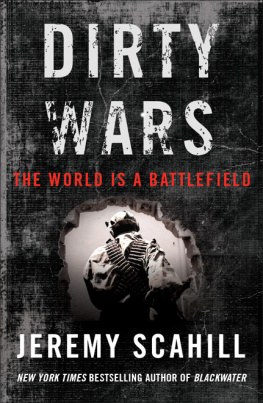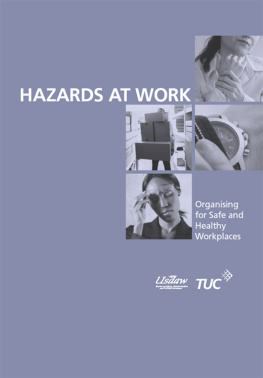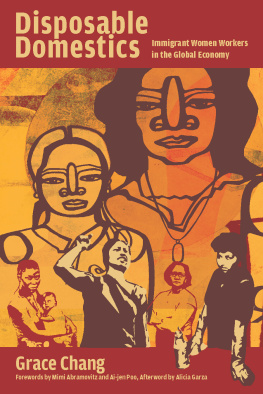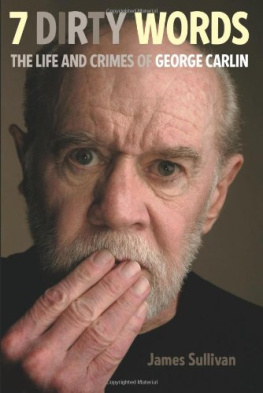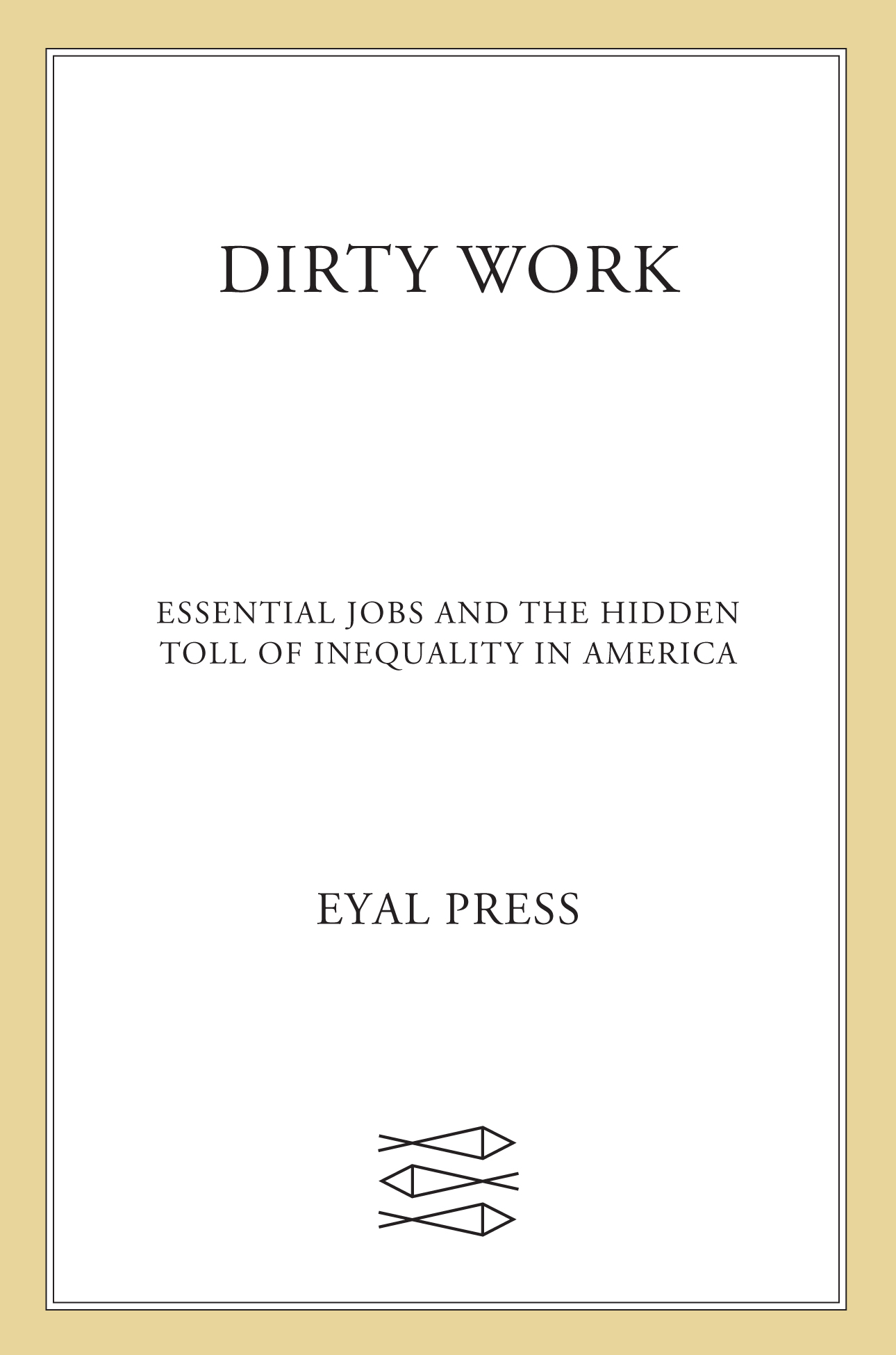Contents
Guide
Pagebreaks of the print version
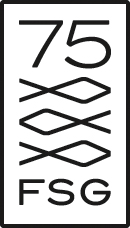

The author and publisher have provided this e-book to you for your personal use only. You may not make this e-book publicly available in any way. Copyright infringement is against the law. If you believe the copy of this e-book you are reading infringes on the authors copyright, please notify the publisher at: us.macmillanusa.com/piracy.
In memory of Talma, my beloved aunt and a great lover of books
The powerless must do their own dirty work.
The powerful have it done for them.
JAMES BALDWIN
One evening in May, in the city of Frankfurt, an American named Everett Hughes visited the home of a German architect. The year was 1948, and like much of the rest of Germany, Frankfurt lay in ruins. Crumbling villas lined the war-blasted boulevards, which the Allies had bombed repeatedly during the aerial campaign against the Nazis. Whole neighborhoods had been leveled to the ground. Driving around a few weeks earlier, Hughes and some companions had woven through the cratered streets of the decimated city center in search of a block whose storefronts and residential buildings had made it through the war unscathed. After a while, they gave up. There was always at least one roof or house gonemore often half or more, he wrote in his diary.
Hughes had not come to Frankfurt to survey the wreckage. A sociologist at the University of Chicago, he was there to spend a semester teaching abroad. Born in 1897, he was a disciple of Robert Park, a former journalist and aide to Booker T. Washington who cofounded the Chicago school of sociology, which stressed the value of direct observation in the study of what Park called human ecology. A keen observer with a fondness for literature and a knack for seeing broad patterns in the details of small, seemingly singular events, Hughes rarely traveled far without a diary or journal in which he jotted down ideas that often made their way into his scholarly work.
In the journal he kept while in Frankfurt, Hughes described socializing with liberal intellectual people who could be of any western country in their general ideas, attitudes and sophistication. The visit he paid to the architect was typical in this respect. They sat in a large studio filled with drawings, sipping tea and chatting about science, art, the theater. If only the intelligent people of all countries could meet, a German schoolteacher who was also there remarked. At one point during the evening, after the schoolteacher complained that some of the American soldiers shed encountered in Frankfurt (which was still under U.S. occupation) lacked manners, Hughes decided to bring up a more delicate subject. Was she aware, he asked, of the way that many German soldiers had comported themselves during the war?
I am ashamed for my people whenever I think of it, the architect stated. But we didnt know about it. We only learned all that later. And you must remember the pressure we were under; we had to join the party, we had to keep our mouths shut and do as we were told. It was a terrible pressure.
Still, I am ashamed, the architect went on. But you see, we had lost our colonies and our national honor was hurt. And these Nazis exploited that feeling. And the Jews, they were a problem the lowest class of people, full of lice, dirty, poor, running about in their Ghettos in filthy caftans. And they came here and got rich by unbelievable methods after the first war. They occupied all the good places. Why, they were in the proportion of 10 to 1 in medicine and law and government posts.
At this point, the architect lost his train of thought. Where was I? he asked. Hughes reminded him that he had been complaining about how the Jews had got hold of everything before the war.
Oh yes, that was it, the architect said. Of course, that was no way to settle the Jewish problem. But there was a problem and it had to be settled some way.
Hughes left the architects house shortly after midnight. But this conversation stayed with him. After returning to North America, he described it in a lecture at McGill University in Montreal. Fourteen years later, in 1962, a version of the lecture appeared in the journal Social Problems. By this point, numerous theories had emerged to explain the procession of horrors that had unfolded under the Nazis and culminated in genocide: the existence of a uniquely German authoritarian personality; the fanaticism of Adolf Hitler. Hughes focused on another factor that implicated people who were anything but fanatics and that was hardly unique to Germany. The perpetrators who carried out the ghastly crimes under Hitler were not acting solely at the behest of the fhrer, he argued. They were agents of good people like the architect who refrained from asking too many questions about the persecution of the Jews because, at some level, they were not entirely displeased.
Holocaust, Judeocide: various terms had been used to describe the Nazi campaign to exterminate the Jews. Hughes chose a more prosaic expression. He called it dirty work, a term that connoted something foul and unpleasant but not wholly unappreciated by the more respectable elements in society. Ridding Germany of inferior races was not unwelcome even among educated people who were not committed Nazis, Hughes concluded from the architects reflections on the Jewish problem, variations of which surfaced in other conversations he had while in Frankfurt. Having dissociated himself clearly from these people, and having declared them a problem, he apparently was willing to let someone else do to them the dirty work which he himself would not do, and for which he expressed shame, Hughes wrote of the architect. This was the nature of dirty work as Hughes conceived of it: unethical activity that was delegated to certain agents and then conveniently disavowed. Far from rogue actors, the perpetrators to whom this work was allotted had an unconscious mandate from society.
In recent years, a growing body of evidence has confirmed that the Nazis did manage to secure such a mandate. As the historian Robert Gellately shows in his 2001 book, Backing Hitler, the violent campaigns against Jews and other undesirables were hardly a secret to ordinary Germans, who knew about and not infrequently lent assistance to the drive for racial purification. In this sense, Hughess article in Social Problems, titled Good People and Dirty Work, was prescient. But as Hughes took pains to emphasize, he had not published his essay to establish this. I do not revive the case of the Nazi Endloesung (final solution) of the Jewish problem in order to condemn the Germans, he wrote, but to recall to our attention dangers which lurk in our midst always.
Raised in a small town in rural Ohio, Hughes had witnessed some of these dangers up close. He was the son of a Methodist minister whose commitment to racial tolerance won him no love from the Ku Klux Klan, which, one night, dispatched some of its white-robed emissaries to the Hughes household to burn a cross on the family lawn. The experience imbued Hughes with an awareness of the darker currents that ran through his own society and with a lifelong aversion to chauvinism of any kind. A skeptic who recoiled from the jingoism of the Cold War, Hughes had little patience for the notion that America was an exceptional nation immune to the moral lapses that befell other countries. After his essay on dirty work was published, the sociologist Arnold Rose wrote to



